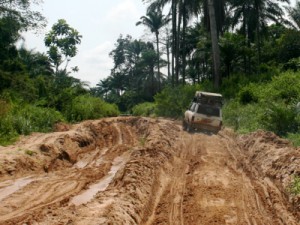Sudan's minister of state for investment said yesterday he expects investments of $6-7 billion in the country in 2010, adding that Africa's largest nation is seeing increased interest in its agricultural sector.
Sudan's economy has been wracked by multiple civil wars, but a 2005 north-south peace deal brought in new foreign investment mostly from Asia and the Gulf, powering economic growth averaging 9% a year.
"A lot of countries have now started to enter into strategic partnerships with us in established projects," Salman Suliman Alsafi told Reuters on the sidelines of an investment conference in Cairo.
"I expect that the size of our investments next year will be around $6 billion-$7 billion, and especially in the agricultural sector now there has been interest in it, especially after the food crisis," Alsafi added, without giving comparative figures.
Persistent drought has driven millions of east Africans towards severe hunger and destitution, according to international aid agency Oxfam.
Alsafi added that the global financial crisis had cast a shadow on Sudan, weighing on investments from countries of the Gulf Cooperation Council that had previously poured in money.
"We expect the investment to continue, but to a lesser degree," Alsafi said, adding that uncertainty over upcoming presidential and parliamentary elections had not impacted investment.
Decades of civil war and sanctions have drained Sudan's resources, and massive agricultural projects have decayed, but the arid Middle East and Gulf have long eyed the agricultural potential of the war-torn nation.
Alsafi said Sudan had drawn interest from Arab Gulf and North African countries, including Qatar, the United Arab Emirates, Egypt and Libya.
Egypt's private equity fund Citadel Capital acquired more than 103 000 feddans of land (43 260 hectares) in Sudan to set up sugar factories, Alsafi said. Citadel said last month it had bought a majority stake in a Sudanese sweet-maker that could serve as a gateway to its growing food market.
Alsafi said Brazil had also entered as a strategic partner with Sudan in various fields such as agriculture and meat production.
"We expect the Brazilian partnership to be very big in the economy especially given the similarity of the situation in Brazil and Sudan in terms of the available potential in water, animal resources, in agricultural land," Alsafi said.
Over two-thirds of Sudan's population are employed in the agricultural sector, the mainstay of the economy prior to the 1990s, when oil production began.
Sudan has the Blue and White Nile rivers, heavy seasonal rains and large expanses of land.












